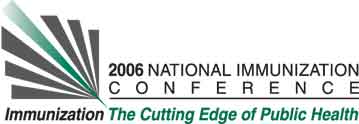Deborah A. Gust1, Allison M. Kennedy
2, Skip Wolfe
3, Kris Sheedy
3, Chau Nguyen
4, and Scott R. Campbell
2. (1) Immunizationn Safety Office, CDC, Atlanta, GA, USA, (2) Immunization Safety Office, CDC, 1600 Clifton Road, NE, MS E61, Atlanta, GA, USA, (3) National Immunization Program, CDC, 1600 Clifton Rd, Atlanta, GA, USA, (4) Logistics Health Inc, LaCrosse, WI
Learning Objectives for this Presentation:
Learning Objective: By the end of the presentation participants will be able to appreciate the importance of evidence-based immunization safety educational materials.
Background:
In a previous survey study we conducted, parents were segmented based on their immunization and health attitudes and beliefs. Two segments identified as most concerned about childhood immunizations (“Worrieds” and “Fencesitters”) were chosen to participate in this focus group (FG) study to assist in developing evidence-based tailored immunization educational materials for mothers.
Objectives:
To obtain 1) detailed information from mothers about their attitudes and beliefs regarding vaccines and their interactions with their child's main healthcare provider, including availability of immunization information; 2) comments on draft educational materials (brochures); and 3) comments on revised educational materials.
Methods:
FG discussions with 129 mothers were conducted in two phases (Phase 1: n=17 groups; Phase 2: n=12 groups) and in three cities across the United States in 2003 and 2004.
Results:
Phase 1 FG, discussions suggested that perceived necessity and safety of vaccines contributed most significantly to mothers' attitudes about having their child receive immunizations. Participants relied on their children's main healthcare provider for immunization information, but they often perceived that information as not sufficient. Of six pairs of variables hypothesized to influence “Worried” and “Fencesitter” mothers and tested in the draft educational materials, the two that received the most positive responses were the use of the 1) CDC logo and 2) simple statistics. In Phase 2 FG, comments on the educational materials (revised based on comments received in Phase 1) were generally positive, with many mothers noting more relevant information was provided and conveyed in a respectful way.
Conclusions:
Evidenced-based, tailored immunization materials may improve vaccine acceptance among specific segments of parents and assist health-care providers in addressing their unique information needs.
See more of Using Behavioral and Social Science Theory to Design and Evaluate Print Materials
See more of The 40th National Immunization Conference (NIC)

